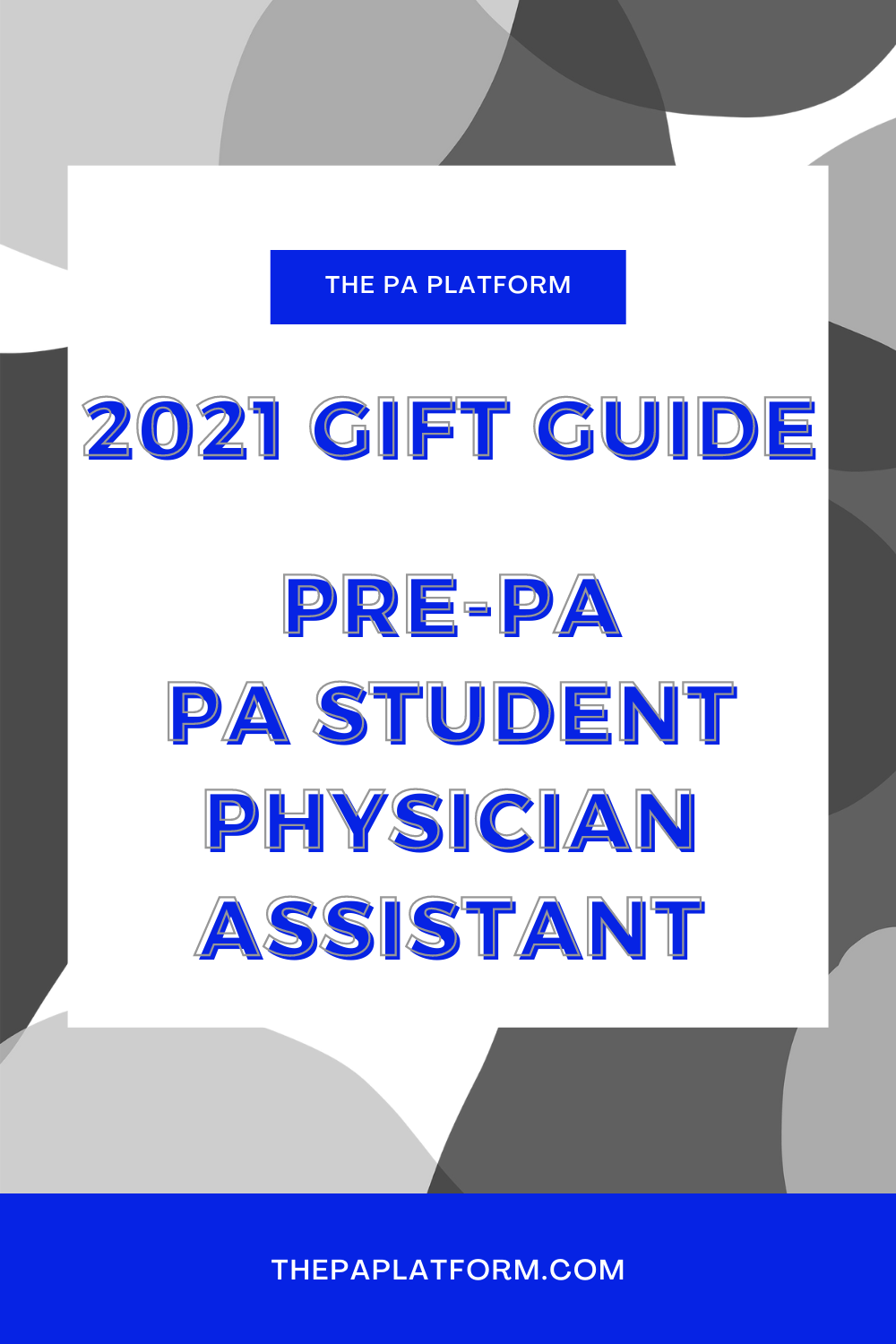Jamie has some great advice today about what happens if you fail an exam in PA school. This will vary based from program to program, but the one thing that's for sure is that PA school is difficult and it's not uncommon to struggle at times. Personally, I failed my very first pharmacology exam. Talk about a reality shock! After remediating, that was thankfully the only exam I didn't pass. Make sure you're following Jamie on Instagram (@jamienicole_pa.s) to get more of her awesome tips.
Full disclaimer that while I am a student at the University of Detroit Mercy’s PA Program, I am not affiliated with the university and my views and opinions expressed in this blog are my own and do not necessarily reflect Detroit Mercy’s.
First semester of PA school kicked my butt. I did not pass two out of our four clinical medicine exams. Yes, you read that right – only made it through 50% of the exams first semester (and somehow they let me keep going… Kidding!) Failing, for me, meant missing both exams by 1 point. So, then what? That’s what this blog is about: what happens after you fail.
“First of all, no one is immune. Second of all, it’s OKAY to fail.
”
What??? Did I just say it’s OKAY TO FAIL? Yes, yes I did. Because it’s better to fail and truly recognize that you don’t know the material than to memorize/dump it on the exam while never truly learning it. It’s not just Sociology 101 anymore – the content you learn in PA school could be as serious as life or death for your patient. So, if you don’t know it, but you pass anyways, you’re only doing your patients a disservice.
Failing means you have a second chance to relearn and understand the content, to strengthen your weaknesses and become the best provider you can be. There are four things you should do following a failed exam.
- Take a deep breath and eat a bowl of ice cream.
I am not responsible for any lactose-intolerance related side effects that may occur following the consumption of large quantities of Ben & Jerry’s. - Go to your professor’s office hours and discuss your options.
We will talk about Detroit Mercy’s remediation process below. Some schools do remediation exams, some schools do not require a specific grade per exam and instead do a semester average. This is a great interview question to evaluate your prospective school: “What process is in place if a student does not pass an exam?” - Try techniques to reduce your anxiety during tests.
Some people need a snack, some people need to wear earplugs, some meditate or pray before the exams, and some have such bad performance anxiety that they do best when they take a beta blocker (but leave this one up to your healthcare provider, please). - Don’t lose your confidence.
It’s easy to get lost in one bad grade. There is a lot of guilt and self-loathing that comes along with that first score where you don’t meet the mark. I cried both times, even though I knew we had a process for remediation. It’s a scary thing because it means you are one step closer to potentially being dismissed from your career. But if you let this shake you, if you let it ruin your confidence, it WILL affect your study habits for the next one and it WILL cause you to lose focus and potentially even fail again. That’s how I failed exam #2. I failed back-to-back.
Remediating Exams: Detroit Mercy’s Approach
We have a very unique exam remediation policy here at Detroit Mercy. It is a big reason I accepted my seat to this program. Detroit Mercy makes it very clear that it truly caters to student success, from their 3-year, part-time program option to their one-on-one attention from faculty to students. When your program supports you as fully as possible, it creates an incredible platform to learn and grow. So when students do not pass an exam with an 80% or better, Detroit Mercy has a very specific remediation policy and should a student not pass remediation, there is also a very specific appeals process to continue the education.
If you don’t care about how Detroit Mercy runs their remediations, feel free to stop here. Reread the above advice.
First is remediation. We have a faculty member assigned to meet with students weekly for a remediation course. It is typically about an hour. There, the content from the exam is reviewed again. This goes on throughout the entire remainder of the semester. The Monday after finals week, remediation exams take place. If you do not pass the final, you have one extra day to study because that remediation is Tuesday. You are given a focused review to help guide your studying. This is crunch time; the most important studying of your life. No pressure. You study like crazy until the night before, get a good night’s sleep, and then take the remediation exam.
If you don’t pass remediation, you receive an email from the program administrator informing you of an “adverse determination regarding academic progression”. In this phase, you are considered “dismissal pending”. This means you have received your appeal letter and can set up a meeting with the appeal committee. To do so, one must write a letter to the program administrator describing the basis or circumstances for the appeal within 5 business days of the email. Once this hearing is established, you are expected to demonstrate why the decision should be overturned. The committee is described below.
“APPEAL OF A PROMOTION AND PROGRESS COMMITTEE DECISION:
Refer to the College of Health Professions academic appeals policy and procedure at this link.
Composition of the Appeal Committee: The program chair will appoint an Appeal Committee as a sub-committee of the Promotion and Progress Committee and designate the chairperson. The Committee shall consist of: PA faculty members (1-2), the public member of the promotion and progress committee, the medical director and one CHP faculty member who is not a PA. Any person selected for the Committee may decline to participate due to perceived or real conflict of interest in the proceedings. A simple majority of the invited members of the Committee will constitute a quorum. Decisions must be approved by a majority of the members in attendance.”
This hearing includes a full assessment of the grades from the course, clinical performance, advisor notes, compliance with previous conditions of probation and external conditions impeding success. The committee then sends a “recommendation” to the program administrator based on the student’s potential for success. The program administrator makes the ultimate decision and sends that information to the Dean, who can affirm or conduct a further appeal. If the decision is overturned, the student re-enters the program on academic probation. They must then meet certain criteria throughout the following semester.
Typically, if the student was full-time initially, they will continue on as a 3-year, part-time student, finishing the courses like pharmacology, anatomy & physiology, and the online courses. The following year, they finish the didactic year PA core classes like clinical medicine, diagnostic & therapeutic techniques, and physical exam practicum. If the person was instead part time to begin with, they typically will have already taken the non-PA classes the year prior (it’s clinical medicine that gets most students). In this case, they repeat that second didactic year. It also highly depends on which semester and the circumstances of the specific student; some repeat all courses, some repeat only clinical medicine. Some don’t have to repeat first semester, but do repeat second semester. 99% of our students will be approved after their appeals process and have a second chance. Ultimately, the program strives to help the student succeed in any way they can.
I passed both of my remediation exams, so I did not have to pursue the appeals process. I referred to my student manual to make this post. I had to remediate cardiology, which is one of the specialties I am considering working in after graduation. After remediation, I feel strong in cardiology and I honestly enjoy all things cardiac muscle, pacemaker and ECG. I really expected to feel scarred from the whole experience, but it honestly helped me grow as both a student and a person. And with that, I will end this blog with a quote: “If it doesn’t challenge you, it won’t change you.”
Hi all. Thanks for reading! I'm Jamie Murawski, a physician assistant student at the University of Detroit Mercy. I have a Bachelor of Science from Grand Valley State University. I'm a Michigan girl through and through.
I'm growing my online presence in the PA community through Reddit, where I moderate /r/prephysicianassistant along with some other pretty cool PA students. I also have an Instagram where I pseudo-blog about my journey (@jamienicole_pa.s). Please feel free to follow me or message me with any questions, I'm happy to help!


















